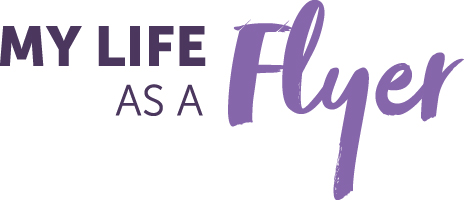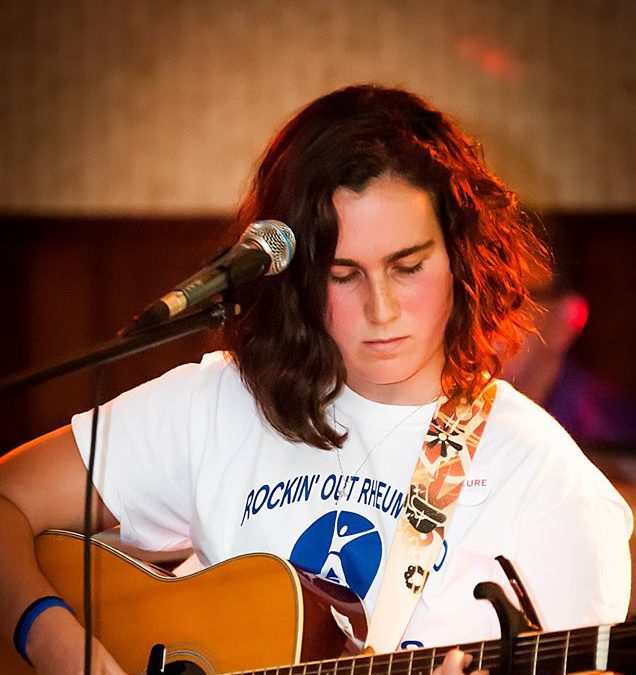Ciao a tutti! This is the final blog in my series “La Mia Vita in Italia- My Life in Italy.” While I feel like I could write a novel about my incredible experiences abroad, there is so much that I’ve been experiencing this semester as a senior at Naz that I want to share. This blog is probably the most important out of my entire series, because I am going to share how Naz made it possible for me to combine my two biggest passions: music therapy and Italian. While I have briefly touched upon my Italian music therapy placement in previous blogs, I feel compelled to give a fuller picture of the power of cross-cultural music therapy.
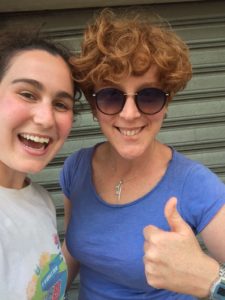
For those of you who are new to music therapy, it is the clinical and evidence based use of music to address the needs of patients in the areas of physical, emotional, cognitive, social, and communicative health. In other words, music therapists use music to empower their clients to achieve their personal goals. The music used in each session is based on what the clients prefer; it can be anything from jazz to rock or even hip hop! My professors at Naz were able coordinate a music therapy clinical through the conservatory in Pescara, Italy. During my time here, I worked with two clients who were in various stages of Alzheimer’s disease. For this placement, I worked with another student music therapist named Francesca; not only was she an incredible student clinician, but I couldn’t have done this placement without her! I want to emphasize that this placement would have also been impossible had it not been for the training I have received at Nazareth leading up to it.
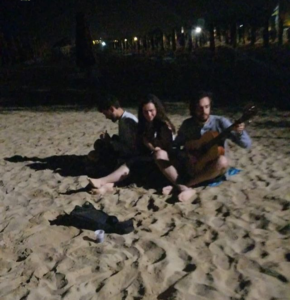
At Nazareth, the music therapy program focuses on forming a strong, musical foundation so when it comes time to perform clinical work, our main focus is on the treatment of our clients. The courses I took at Naz prior to my placement in Italy are what ultimately facilitated my success. My required music therapy coursework included taking four semesters of music theory, ear-training/sight singing (called “Aural Skills”), guitar, piano, and several courses studying the key components of music therapy. These classes were crucial in enhancing my skills as a clinician in Italy, because when I couldn’t rely on language to connect with my clients, I used the music. Another course I took was “Clinical Improvisation,” where I learned how to play various instruments and sing in the moment address my clients’ needs. In a session, this could manifest as me playing chords while my client sings “oo.” Another skill I gained from this course was the ability to listen to what my clients were playing and to reciprocate it; this allowed us to connect on a much deeper level. Naz’s thorough music therapy curriculum made it so I could eventually run my music therapy sessions in Italy independently.
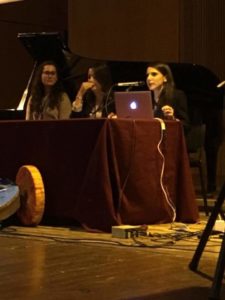
By now you are probably wondering what music did I actually use with my clients in Italy? As I mentioned earlier, the key to music therapy is using music that the clients prefer or are familiar with. Because my clients were older adults, we used Italian folk music such as “Reginella Campagnola;” this is the song of the Abruzzo region, where Pescara is. Additionally, we used popular Italian music that they knew from when they were young adults, music from around the 1940’s and 50’s. Yes, each session was conducted in Italian. Yes, at first I was very confused and could barely talk, but once I learned the music, I was able to make meaningful connections with my clients. Even before I was comfortable with the music, I would sing along with Francesca or sing my clients’ names to try to elicit a response from them. It was thrilling when they eventually greeted me by name and asked about my life in America. To make a genuine connection with someone while overcoming age and language barriers is something I will never forget. Without my music therapy training at Naz, I would have never been able to have this incredible experience.
